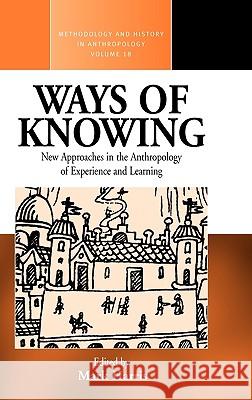Ways of Knowing: New Approaches in the Anthropology of Knowledge and Learning » książka
Ways of Knowing: New Approaches in the Anthropology of Knowledge and Learning
ISBN-13: 9781845453640 / Angielski / Twarda / 2007 / 354 str.
That there are multiple ways of knowing the world has become a truism. What meaning is left in the sheer familiarity of the phrase? The essays here consider how humans come to know themselves and their worlds. Should anthropologists should seek complexity or simplicity in their analyses of other societies? By going beyond the notion that a way of knowing is a perspective on the world, this book explores paths to understanding, as people travel along them, craft their knowledge and shape experience. The topics examined here range from illness to ignorance, teaching undergraduates in Scotland to learning a Brazilian martial arts dance, Hegels concept of the dialectic to the poetry of a Swahili philosopher. A central concern is how anthropologists can know and write about the silent, the concealed and the embodied.
That there are multiple ways of knowing the world has become a truism. What meaning is left in the sheer familiarity of the phrase? The essays here consider how humans come to know themselves and their worlds. Should anthropologists should seek complexity or simplicity in their analyses of other societies? By going beyond the notion that a way of knowing is a perspective on the world, this book explores paths to understanding, as people travel along them, craft their knowledge and shape experience. The topics examined here range from illness to ignorance, teaching undergraduates in Scotland to learning a Brazilian martial arts dance, Hegels concept of the dialectic to the poetry of a Swahili philosopher. A central concern is how anthropologists can know and write about the silent, the concealed and the embodied.











